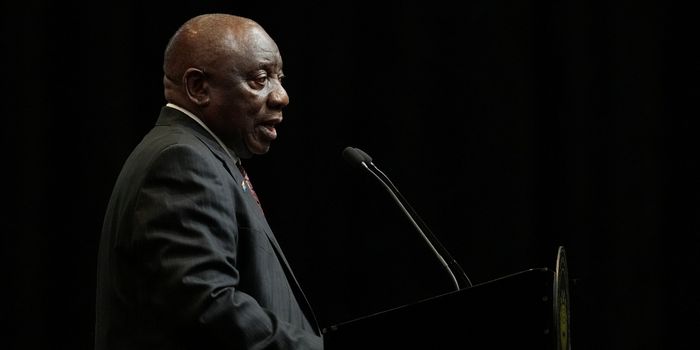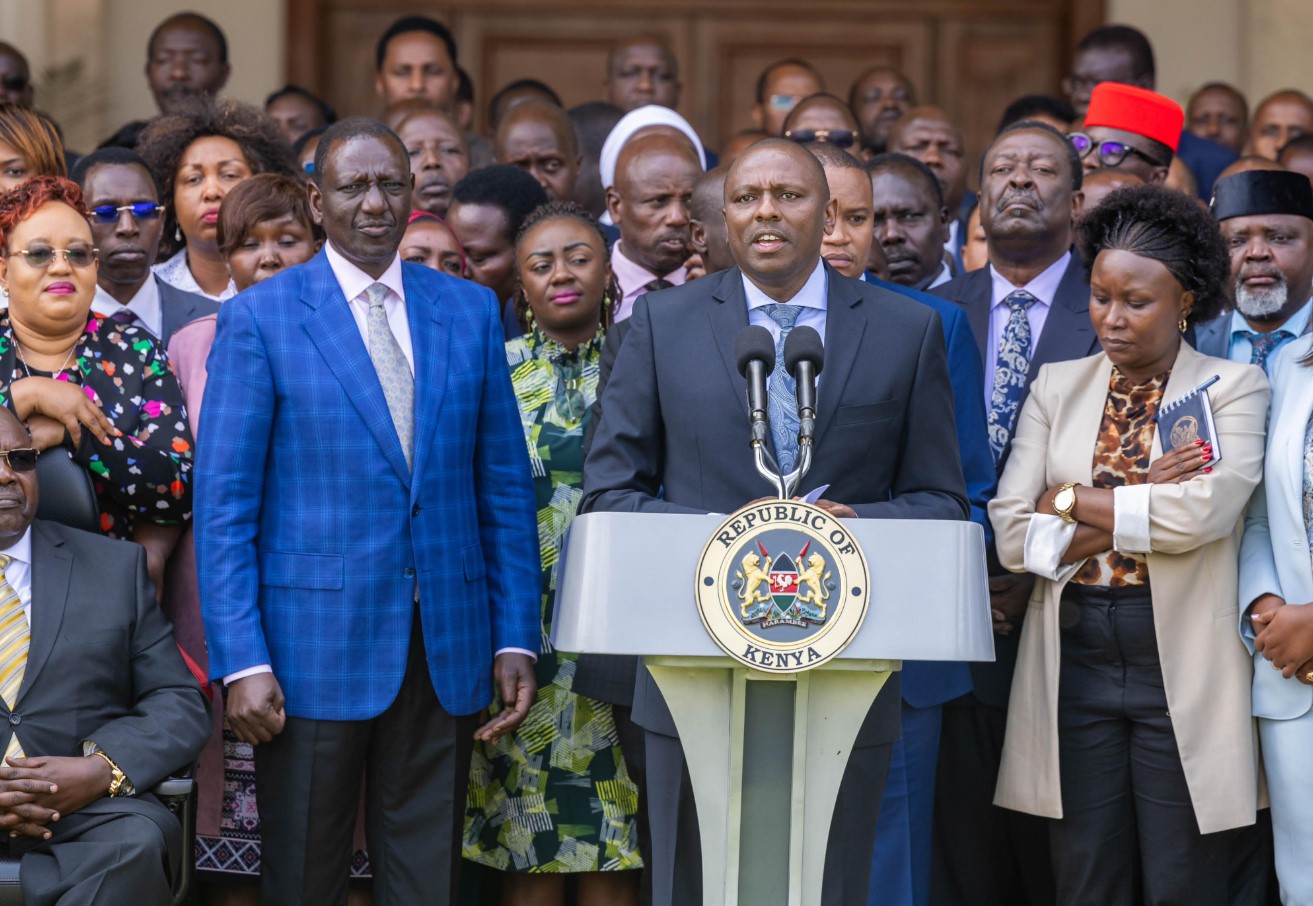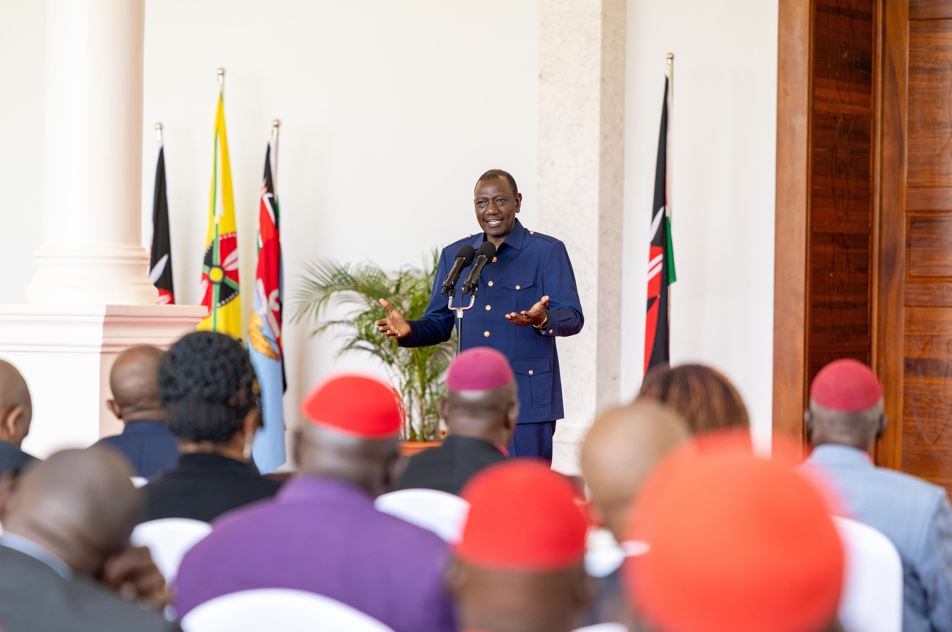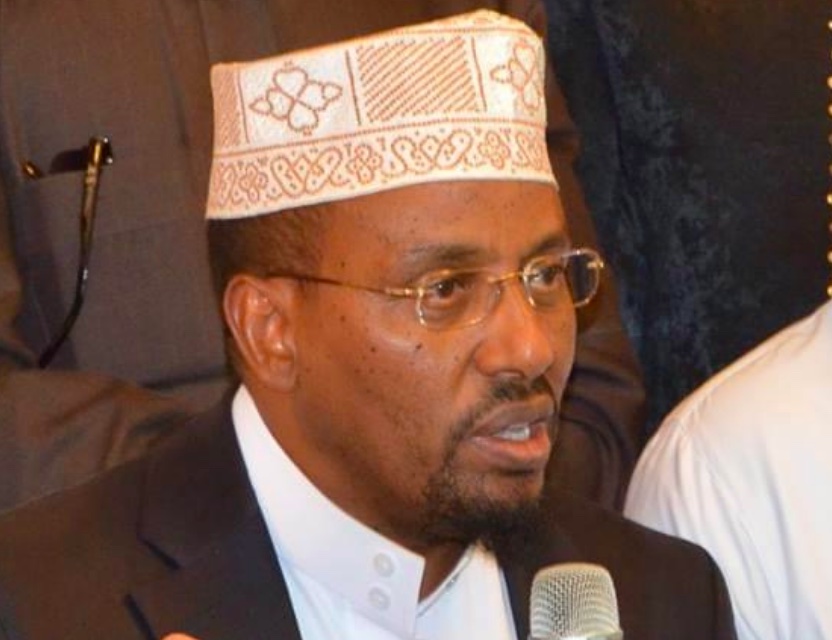Kenya seeks second Sh130bn Eurobond buyback to ease debt burden
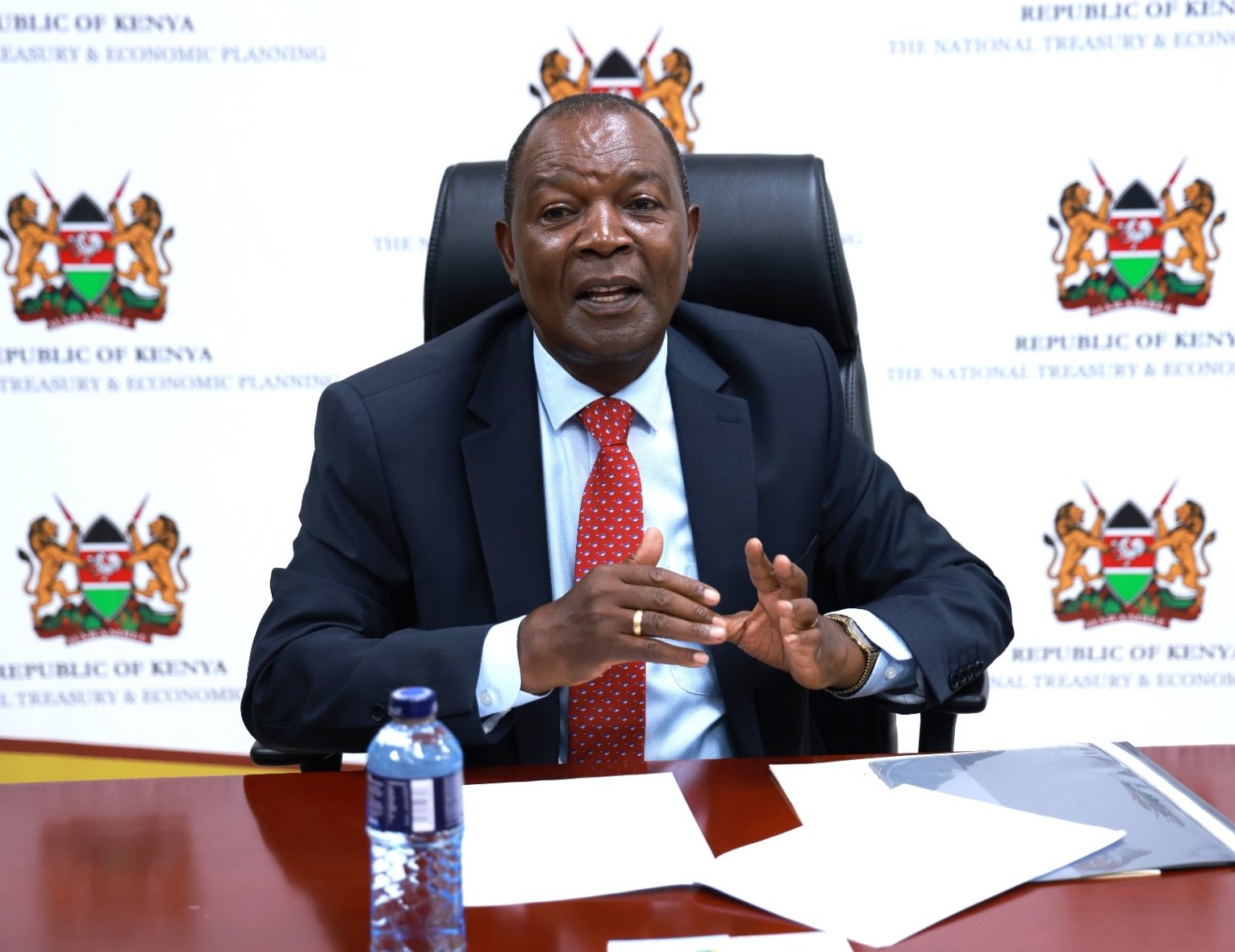
By Bashir Mohammed |
In February, Kenya sold a new $1.5 billion (Sh196 billion) Eurobond to fund the buyback of a large portion of the $2 billion (Sh261.4 billion) bond.
Kenya is planning to spend an additional Sh130.7 billion ($1 billion) this year to pay off its Eurobond maturing in 2027.
The move comes after the country faced elevated fears from global investors that it might fail to repay its debut Eurobond due this month.
Keep reading
- Kenya to use World Bank loan to make $500 million Eurobond payment this month
- UN Trade and Development cautions developing countries against issuing more Eurobonds
- State budget cuts still far from easing Kenya's debt pains - report
- CS Njuguna Ndung’u affirms Kenya’s commitment to servicing international debts
However, in February, Kenya sold a new $1.5 billion (Sh196 billion) Eurobond to fund the buyback of a large portion of the $2 billion (Sh261.4 billion) bond.
The second buyback is expected to ease Kenya's debt burden and alleviate concerns about the country's ability to repay its looming debts.
According to the World Bank, the government is considering another Eurobond buyback in 2024, which will bring the total 2024 buyback to approximately Sh326.7 billion ($2.5 billion). This move is expected to smooth out the amortisation profile, which was done for the recent issuance that was smoothed over three years.
Following the February payment of its first Eurobond, confidence lifted the Kenyan shilling against the dollar, appreciating the current Sh130.50 from a peak of Sh160.75 on January 29. The buyback also cut through investor jitters that had seen some anticipating a potential default by Kenya, leading to a sharp deterioration of the exchange rate in the run-up to the February action.
Estimates place Kenya's outstanding Eurobond stock at Sh927.9 billion ($7.1 billion), including the most recent issue, with maturities anticipated between June this year and February 2048.
The total outstanding Eurobonds amount to nearly 10 per cent of Kenya's public debt stock, which stood at Sh10.3 trillion as of the end of March. Eurobonds attract higher interest costs compared to loans from bilateral and multilateral partners like the World Bank, given their commercial nature.
The savings generated by the buybacks would be critical for a government that spent an estimated one-third of its ordinary revenue in the year to June 2023 on interest costs, or Sh33 for every Sh100 in taxes collected.
International backing
Kenya benefits from international backing, including from the International Monetary Fund (IMF) and the World Bank, which have offered multi-billion-shilling support. According to the World Bank, the second buyback will largely target sovereign bonds maturing in 2028 and 2031. In addition to the Sh117.6 billion Eurobonds due in 2027, there are additional obligations of $1.5 billion (Sh196 billion) due by 2031, Sh156.8 billion in 2032, and Sh130.7 billion in 2034.
The 2028 Eurobond requires immediate payment of the principal, with the remaining amount spread out over three years. The Treasury is likely to target a partial buyback on the Eurobond maturing in 2028. The balance of Sh65.3 billion ($500 million) in outstanding payments for the June 2024 Eurobond is expected to be settled through a combination of financing from multilateral, bilateral lending, and bank syndication.
Kenya's most recent Eurobond buyback has been undertaken at a premium, with the government accepting a higher interest rate on investor bids compared to the return settled during the paper's first issuance. Rising interest rates in the international capital markets have meant the government is parting with a premium, even as the buybacks help ease liquidity and default risk concerns.
The World Bank earlier warned Kenya of the persistence of a high risk of debt distress following the costly Eurobond buyback. Despite the ease of interest rate spreads, external borrowing had become more expensive than it was before the pandemic, according to the multilateral lender. The coupon on the new Eurobond issued in February was 9.75 per cent, compared to the 6.875 per cent coupon on the 10-year sovereign bond, which matures on June 24.
The recent reopening of the international capital markets for sovereign issues by African countries, including Kenya, Benin, and Ivory Coast, has opened the window for the government to return to issues, helping to resolve some of the pent-up liquidity and funding pressures seen in recent years.







